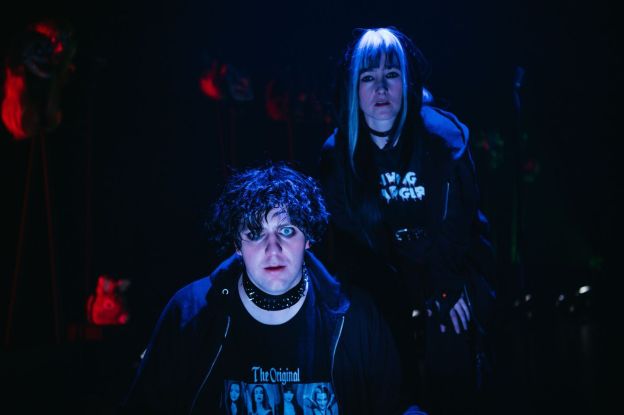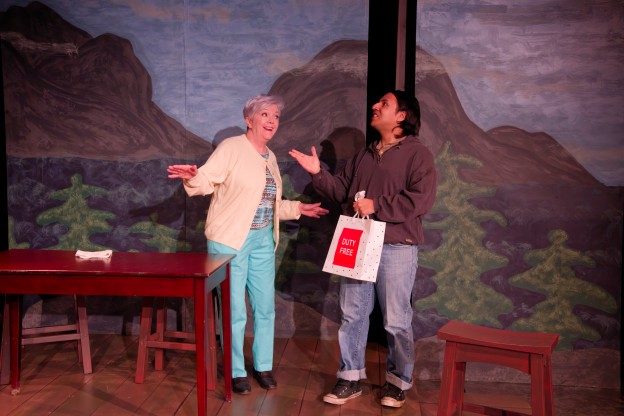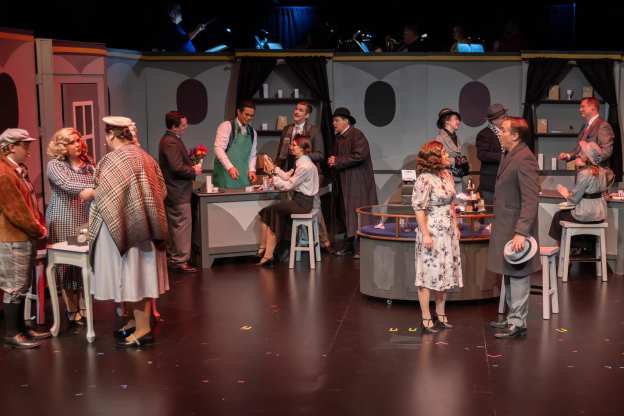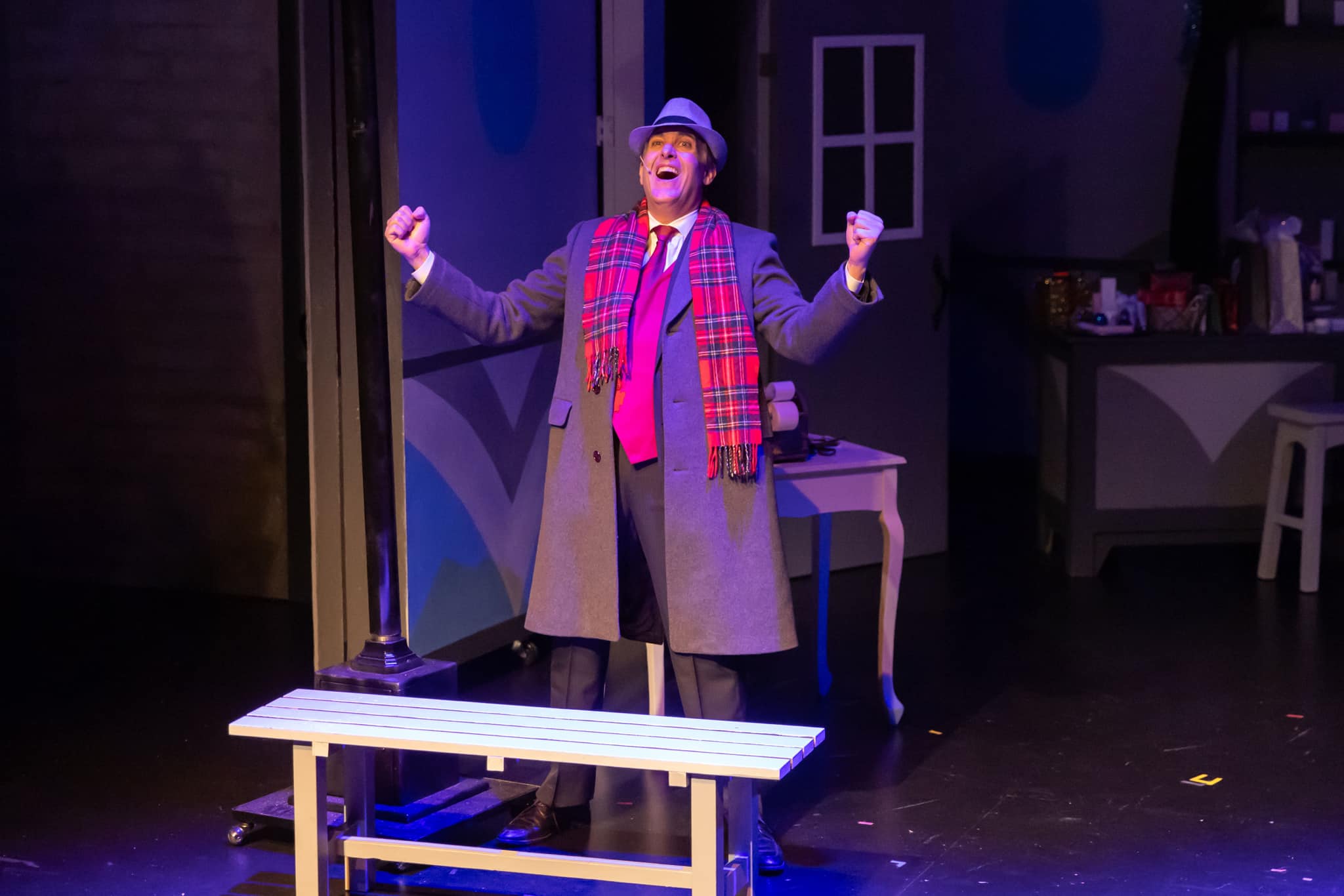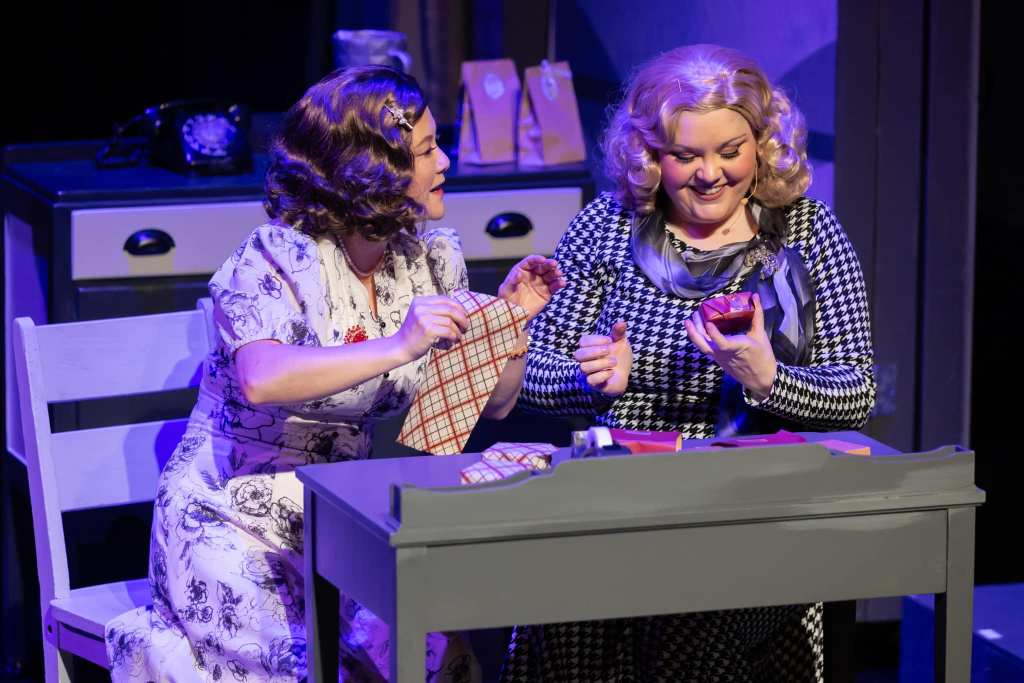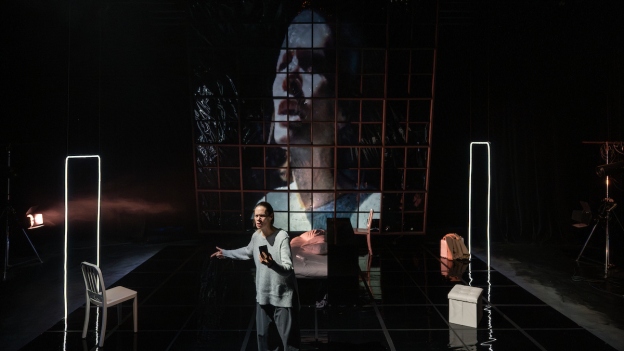Jake Tkaczyk, as Kenny, and Jayce Mackenzie, as Candy, in Candy and the Beast. Photo Brianne Jang, BB Collective Photography.
One of my Facebook correspondents called Candy and the Beast “this weird little play”. And he’s not wrong.
Trevor Schmidt’s latest original script on stage at Northern Light Theatre is disturbing and kind of delightful, both. I was thinking that it’s not quite like any of his other work that I’ve seen, but it takes advantage of a lot of things the writer/director/designer is good at. He’s good at poignant; he’s good at macabre; he’s clever at creating designs that enhance the mood and message of a production. He’s very good at the humour and dramatic-irony of naive child narrators, as we saw in Shadow Theatre’s recent production of Schmidt’s Robot Girls, about junior high school students in a science club making sense of families and friendship and growing up.
Candy and the Beast demonstrates all these strengths, in a performance a little over an hour long. The audience enters the Arts Barns Studio space in the fog and gloom, to be seated on low risers along one of the long walls and wonder what the menacing lumps on poles are, upstage. One of my neighbours, opening night, said that the lights were gradually coming up as showtime approached – but they weren’t coming up very much.
The play starts with two characters staring out at the world together through Hallowe’en masks and layers of goth-teen armour: Candy Reese (Jayce Mackenzie) is the main narrator, observing her little town and protecting her younger brother Kenny (Jake Tkaczyk). Younger, but not smaller – she prods Kenny to explain that he has a condition known as central precocious puberty, meaning that his body’s grown up while he’s still a little kid. So they call him The Beast. He says he doesn’t mind. She says he does.
And the town has some issues – not just the classism against trailer-park residents like Candy and Kenny and their parents, and general mistreatment of outsiders and weirdos, but a pack of howling animals in the nearby woods, and a serial killer at large – a killer picking off young blonde women, especially ones the town doesn’t care about. The story and mood reminded me a bit of Twin Peaks.
The sibling relationship between Candy and Kenny was one of the most compelling things about this play. The little boy adopts his tough big sister’s fashions, beliefs, and interests – his big sister beats up his bullies, helps him get to sleep, and reassures him that he’s not too old to trick-or-treat. As an oldest sibling, I found her mix of impatience and kindness easy to connect with. Their parents sound benign, but aren’t significant in the story. The play also says some important things about outsiders in a community.
Other characters brought to life in various scenes include self-absorbed real-estate agent Donna Crass shopping at the ice cream stand where Candy works, Sheriff Sherry Lau (“the long arm of the Lau”) updating townspeople about the investigation and search, a grandmotherly librarian helping Kenny research werewolves, and others. Tkaczyk, a member of the Guys in Disguise theatre-drag troupe, embodies some of these characters with distinctive voices and mannerisms.
The production is enhanced by Schmidt’s set and costume choices, dim and harsh lighting from Alison Yanota, and sound design and original music by Dave Clarke. The menacing lumps seen pre-show turn out to be a row of creepy heads on pikes, with the wall behind showing some graffiti left on the wall of Candy and Kenny’s trailer.
The performance includes several songs by Kenny (Tkaczyk), representing his thoughts, fears, and imaginings. They vary from eerie foreshadowing to a melodic ballad with a few songs reminding me of David Bowie’s 1980s repertoire, with effective use of recorded guitar track and echoey microphone.
I won’t reveal the plot events or provide any explanations of the mysteries, but I found some satisfaction at the end in a shift in the relationship between Candy and Kenny, as they become more honest with each other and give each other more comfort. I don’t know what will happen to these characters next, but I think it’s going to be okay. (And if you don’t think so, don’t tell me, because I really like both of them!)
Candy and the Beast is continuing at the Arts Barns Studio Theatre until next Saturday night, April 20th. Run time is about 65 minutes. Tickets are available here and at the door. (Tuesday Apr 16 is 2-for-1).

